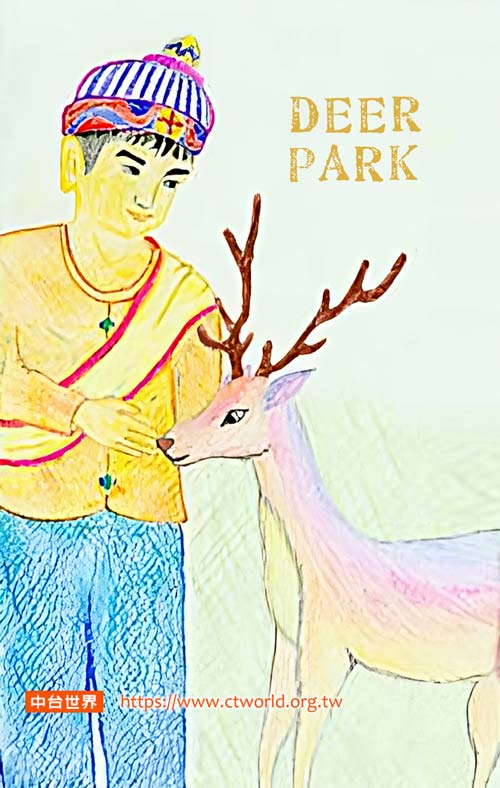
Once lived a Deer King who was tall and handsome with fur that glowed in five colors. He and his herd of thousands roamed free in a pristine forest. But one day, a human king and his entourage discovered their dwelling place. Seeing the abundance of deer, they went hunting and hurt and killed many.
The Deer King’s compassionate heart filled with grief at the sight of so many fallen deer. He went to see the human king and pleaded, “I believe in your heart you know every living being treasures its own life. Please spare us the fear of being hunted and killed. In return, we will send one deer as an offering to you every day.” The king was surprised but agreed to this arrangement.
The day came when a mother doe, pregnant with a fawn, was to be sent to the king. She begged the Deer King to at least delay her death until she could give birth. Though the Deer King pitied the doe, he could not bring himself to ask another to die in her stead. Thus when it came time, he went to the human king alone.
Taken aback, the human king asked, “Are there no other deer left?” He realized that the Deer King intended to offer himself in place of another. Feeling shame well up inside of him, the king thought, “The Deer King is but an animal, yet he has such compassion for his fellow beings. I am the king of humans, but I kill others to satisfy my palette.” With a mind of repentance, the king decreed that none shall intentionally harm or kill a deer ever again. The forest was made a sanctuary for the herd and came to be known in India as Deer Park. The Deer King was one of Shakyamuni Buddha’s previous incarnations.
REFLECTION
In Buddhism, compassion is to remove suffering and bring joy to all sentient beings. With hearts filled with compassion, we will naturally shoulder difficulties for the sake of others. As our compassion deepens, the boundary between self and other begins to dissolve—we see others’ suffering as our own and do all we can to bring them peace. To slowly realize unconditional compassion is to practice the Bodhisattva Way.